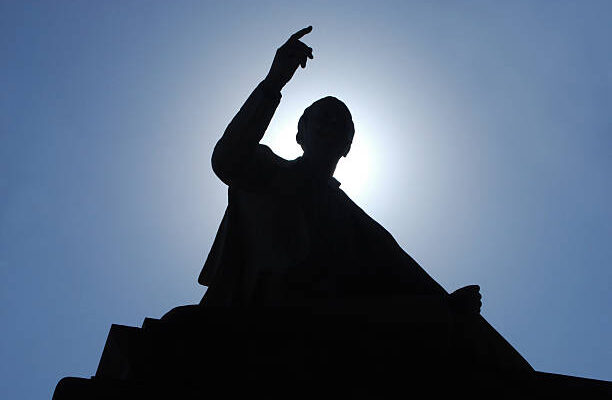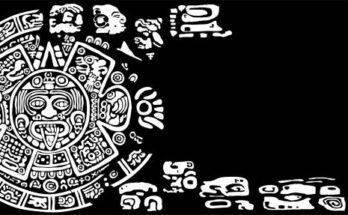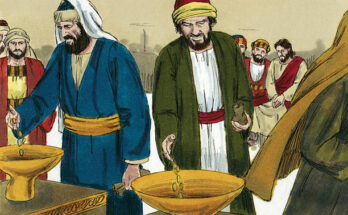Religious leaders, throughout history and across diverse cultures, have played a pivotal role in shaping the beliefs, values, and moral fabric of societies. Beyond the rituals and doctrines they uphold, these leaders possess unique and dynamic personalities that set them apart. In this exploration, we delve into the multifaceted dimensions of the personality of a religious leader, examining the traits that make them influential figures and sources of inspiration for millions around the world.
Charisma and Presence
 (Photo from iStock)
(Photo from iStock)
At the core of a religious leader’s personality lies an undeniable charisma and magnetic presence. Whether addressing a congregation of thousands or engaging in one-on-one interactions, their ability to captivate hearts and minds is unparalleled. Charismatic religious leaders exude an aura that goes beyond mere eloquence. Moreover, it’s an intangible quality that draws people in, making them feel a deep connection to the leader and the message being conveyed.
Consider the late Rev. Dr. Martin Luther King Jr., whose charismatic presence fueled the civil rights movement. His ability to articulate a vision for a more just society resonated not only with his immediate followers but also transcended racial and cultural boundaries. Charisma, in the context of religious leadership, becomes a powerful force for uniting diverse communities under a common purpose.
Empathy and Compassion
A hallmark of an effective religious leader is an unwavering sense of empathy and compassion. These leaders are often viewed as empathetic figures who understand the struggles and triumphs of their followers. Compassion becomes a guiding principle in their interactions, allowing them to connect with people on a personal level. Further, by displaying genuine concern for the well-being of others, religious leaders create a supportive environment that fosters a sense of belonging and community.
His Holiness the 14th Dalai Lama serves as an exemplary figure in this regard. His teachings on compassion and the interconnectedness of all beings reflect a deep understanding of human suffering. The Dalai Lama’s ability to empathize with individuals, regardless of their background or beliefs, has made him a symbol of compassion transcending religious boundaries.
Courage and Conviction
Religious leaders often find themselves at the forefront of social and political issues, advocating for justice and equality. A dynamic personality includes the courage to stand firm in the face of adversity and to speak out against injustice. This courage emanates from a deep well of conviction rooted in the leader’s faith and moral principles.
Take, for instance, the Archbishop Desmond Tutu, a key figure in the fight against apartheid in South Africa. His unyielding commitment to justice and reconciliation, despite facing threats and challenges, exemplifies the courage that defines the personality of a religious leader. Further, it is this courage that inspires followers to persevere in their own struggles and to stand up for what they believe is right.
Humility and Servant Leadership
 (Photo from iStock)
(Photo from iStock)
Contrary to the stereotype of religious leaders as authoritarian figures, many possess a humility that sets them apart. The concept of servant leadership, where the leader prioritizes the well-being of their followers above their own, is a defining trait. Moreover, humility allows religious leaders to connect with people on a human level, fostering trust and creating an atmosphere of mutual respect.
Pope Francis, with his emphasis on humility and service, has reshaped the perception of the papacy. His choice of a simple lifestyle, commitment to social justice, and outreach to marginalized communities embody the principles of servant leadership. By humbly embracing the role of a servant, religious leaders can effectively inspire and guide their followers.
Adaptability and Open-mindedness
In a rapidly changing world, religious leaders with dynamic personalities exhibit adaptability and open-mindedness. They recognize the evolving nature of society and are willing to engage with contemporary issues while remaining grounded in their faith. This adaptability enables them to relate to a broad spectrum of individuals, including those who may hold different perspectives.
The Dalai Lama’s approach to incorporating modern science into Buddhist teachings exemplifies this adaptability. By embracing dialogue with scientists and acknowledging the compatibility between science and spirituality, he demonstrates a willingness to evolve with the times. Furthermore, open-mindedness allows religious leaders to bridge generational and cultural gaps, making their message relevant to a diverse audience.
Wisdom and Intellectual Depth
A religious leader’s personality is often characterized by a depth of wisdom that goes beyond superficial knowledge. Intellectual depth is rooted in a profound understanding of religious texts, philosophical principles, and the complexities of the human experience. This wisdom serves as a source of guidance for followers facing moral dilemmas and seeking answers to life’s profound questions.
The intellectual prowess of figures like Rabbi Lord Jonathan Sacks, a renowned theologian and philosopher. Further, exemplifies this trait. His ability to articulate complex ideas in a way that resonates with a wide audience showcases the intellectual depth that can define a religious leader’s personality. Wisdom becomes a beacon that attracts seekers and inspires contemplation.
Conclusion
The personality of a religious leader is a rich tapestry woven from various threads of charisma. Empathy, courage, humility, adaptability, and wisdom. It is a dynamic and evolving construct that shapes the leader’s interactions with followers. And their impact on the broader community. In times of uncertainty and change. The resilient and inspirational personality of a religious leader serves as a guiding light, offering hope, solace. And a sense of purpose to those who look to them for spiritual leadership. Moreover, as we continue to witness the influence of religious leaders on the global stage. Understanding the complexity of their personalities becomes essential for appreciating the profound impact they have on individuals and societies alike.
Religious leaders embody charisma, empathy, courage, humility, adaptability, and wisdom, forming a dynamic personality that resonates across cultures. From the Dalai Lama’s compassion to Pope Francis’s humility, their impact goes beyond doctrine, inspiring millions. Evidently, these leaders navigate change with resilience, providing a beacon of hope and purpose in turbulent times.
Reference:
Studocu
Want to know about creation of the world, click on the link below:
How Can Religion Be Created? Exploring the Origins and Evolution




